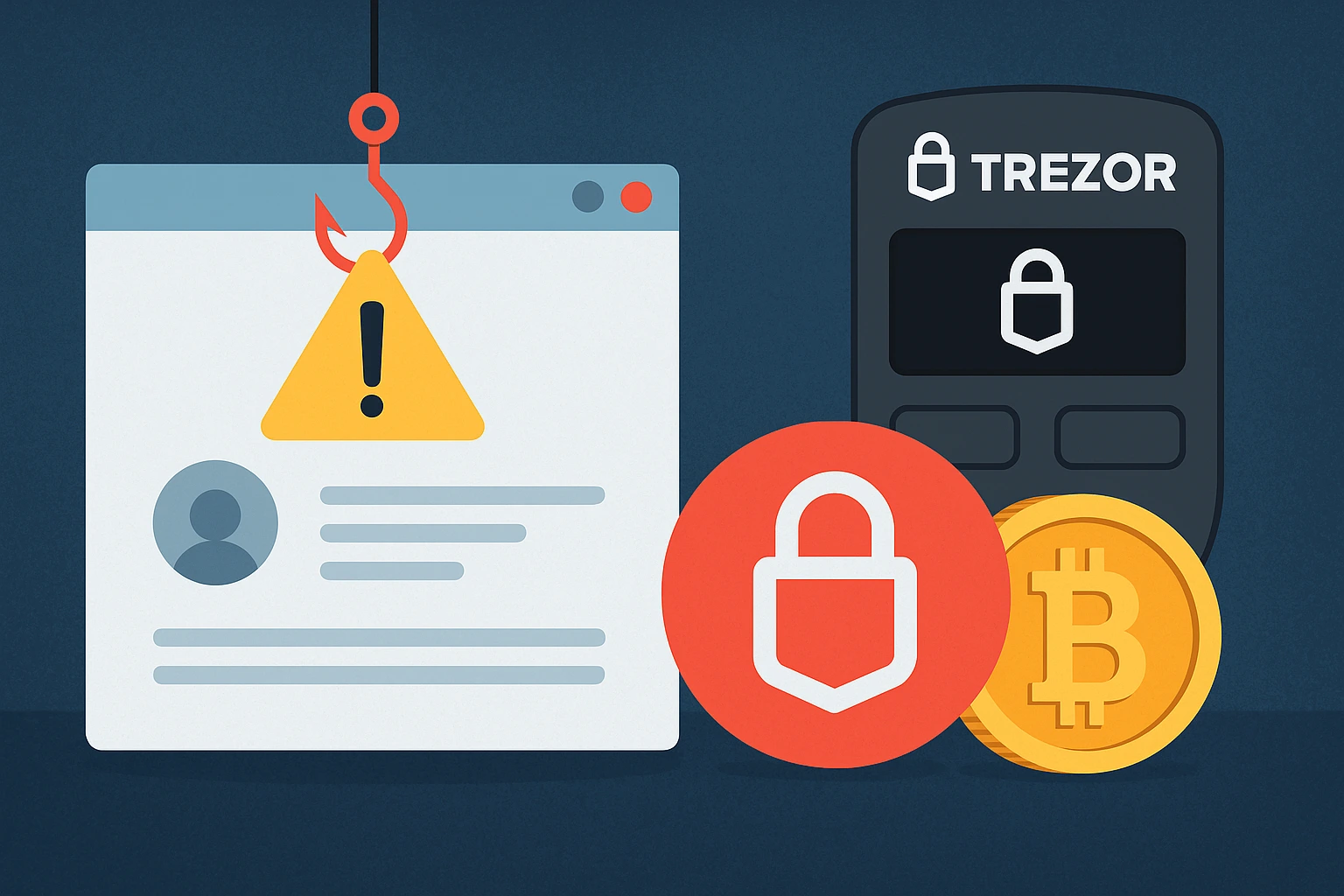Trezor, a leading hardware wallet provider for cryptocurrencies, has recently become the target of sophisticated phishing scams exploiting its support platform. Specifically, cybercriminals have been leveraging fake support channels and deceptive communication tactics to trick users into divulging sensitive information, such as recovery seeds and private keys. These phishing attacks often involve fraudulent emails, websites, and even phone calls, all designed to mimic Trezor’s legitimate support services. The breach highlights the growing threat of social engineering in the cryptocurrency space, underscoring the need for heightened vigilance and robust security measures among users to protect their digital assets.
Understanding How Trezor Support Platform Was Exploited in Phishing Scams
In recent months, cybercriminals have exploited the Trezor support platform in sophisticated phishing scams targeting crypto users. Trezor, known for its hardware wallets, has seen its reputation tested as attackers use support-related vulnerabilities to deceive users. These phishing scams have highlighted the critical need for enhanced security measures and increased user awareness within the cryptocurrency community.
The phishing scams targeting Trezor users typically begin with an email or message that appears to be from Trezor’s official support team. These communications often claim that there is an urgent issue with the user’s account or device, prompting immediate action. The messages are crafted with a high degree of professionalism, making them appear authentic and increasing the likelihood that users will fall for the scam.
Steps to Protect Yourself from Cryptocurrency Phishing Scams
In recent months, the cryptocurrency community has been on high alert following reports of phishing scams exploiting the Trezor support platform. These scams have targeted unsuspecting users, leading to significant financial losses. As cryptocurrency continues to gain popularity, cybercriminals are becoming more sophisticated. This makes it imperative for users to stay vigilant and proactive in safeguarding their digital assets. Understanding the tactics employed by these scammers is the first step in fortifying oneself against potential threats.
Phishing scams typically involve deceitful communication that appears to be from a legitimate source. In the case of the Trezor support platform, scammers have been sending emails and messages that mimic official Trezor communications. These fraudulent messages often contain urgent requests or warnings designed to pressure users into clicking malicious links or providing sensitive data.
The Impact of Phishing Scams on Cryptocurrency Security
In recent years, the rise of cryptocurrency has brought a surge in cyber threats, with phishing scams becoming a major concern. A recent case involving the Trezor support platform highlights key vulnerabilities in digital currency security. These scams, which trick users into revealing passwords and private keys, remain a common tactic among cybercriminals. However, the targeting of Trezor, a well-known provider of hardware wallets, marks a concerning escalation in these activities.
The Trezor support platform was recently exploited in a sophisticated phishing campaign, wherein attackers masqueraded as legitimate support representatives. By doing so, they were they were able to extract users’ recovery phrases and gain full access to their cryptocurrency wallets, resulting in significant financial losses.
Best Practices for Securing Your Cryptocurrency Wallet
Recently, the crypto community has been on alert due to phishing scams exploiting the Trezor support platform. Trezor, a popular hardware wallet, has become a target for scammers tricking users into revealing sensitive data. This highlights the urgent need to follow best practices for securing wallets and protecting digital assets.
To begin with, understanding the nature of phishing scams is essential. These scams often use fake emails or websites that mimic official sources. With Trezor, scammers set up fake support sites and emails to steal private keys and recovery phrases.
Conclusion
The exploitation of the Trezor support platform in cryptocurrency phishing scams underscores significant vulnerabilities within digital asset security frameworks. Attackers abused users’ trust in official support, gaining access to sensitive data and causing financial losses. This highlights the urgent need for better security, stronger verification, and user education to counter advanced phishing threats. Strengthening these areas is essential to safeguarding digital assets and maintaining user trust in cryptocurrency platforms.


0 responses to “Trezor Support Platform Exploited in Cryptocurrency Phishing Scams”